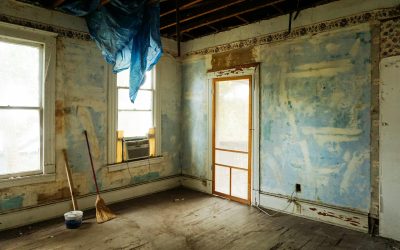Quick Answer: The average time to sell a house in 2025 is 47 to 62 days total – this includes 16 days on market until offer acceptance, plus 30-45 days for closing. However, sellers typically spend 6 months preparing their property before listing.
Current Market Snapshot:
- Days on Market: 16 days (national average)
- Closing Period: 30-45 days after offer acceptance
- Total Transaction Time: 47-62 days from listing to keys
- Pre-listing Preparation: 6 months average
- Median Home Price: $363,000 (3-bed, 2.5-bath, 2,000-2,499 sq ft)
Key Factors Affecting Sale Speed:
- Location – Urban properties sell faster than rural
- Price Range – Higher-priced homes take longer
- Season – Spring sales move quickest
- Market Conditions – Interest rates and buyer demand
- Property Condition – Well-maintained homes sell 50% faster
This represents a significant improvement from 2010 when houses averaged 140 days on market, showing how today’s real estate market has evolved to favor faster transactions. For homeowners who need to sell house for cash, understanding these timelines becomes even more crucial.
How Much Will My House Be Worth?
The standard home sold nationwide is a 3-bedroom, 2.5-bathroom property measuring 2,000 to 2,499 square feet. These typical properties carry an average price of $363,000 across the country according to HUD housing data. Property values vary based on size, features, and location factors that buyers consider important.
Time It Takes To Sell A House
The time needed to sell a house in your region varies based on local market conditions. Your specific location and neighborhood characteristics directly impact selling speed. Rural properties typically remain on the market longer than city or suburban homes. Urban areas often have more active buyer pools and faster transaction times. Higher-priced homes usually require more time to find qualified buyers willing to purchase. Luxury properties face smaller buyer markets, which naturally extends the selling process. If you’re thinking “I want to sell my house urgently,” understanding these regional differences helps set realistic expectations.
How Do I Research Market Speed in My Area?
Your real estate agent can share valuable information about local market conditions and sales pace. They have access to data showing how quickly similar properties have sold recently. Local news sources often report on real estate trends and market changes in your region. The National Association of Realtors research statistics provides comprehensive market data for informed decisions. These reports help you understand current buying and selling patterns. Watch nearby listings to see how fast properties move in your neighborhood. Notice if homes sell quickly or keep hosting repeated open houses each weekend. This observation gives you real-time insight into local market activity.
How Quickly Can You Sell a House?
Sellers across America typically spend about six months getting their properties ready for market. The preparation phase includes repairs, staging, and pricing decisions that impact sale success. After listing, houses stay on the market for roughly 16 days before receiving offers. The closing process then takes an additional 30 to 45 days to finalize. This timeline shows the complete journey from preparation to final sale completion. For those who need to sell home fast, alternative selling methods may provide quicker solutions.
Step-by-Step Timeline to Sell a House
The selling process involves more than simply listing your property and waiting for buyers. After completing all preparation work, you’ll move through several important stages before closing. Each phase has its own timeline and requirements that affect the overall sale duration. Understanding these steps helps you plan better and set realistic expectations. The Consumer Financial Protection Bureau’s homeownership resources offer detailed guidance for each stage.
1. List Your Property and Show to Buyers
Getting your property ready for showings marks the beginning of active selling efforts. Professional photos and compelling descriptions help attract more potential buyers to your listing. Marketing your home effectively increases the chances of receiving multiple competitive offers quickly.
- Average market time is 25 days before accepting an offer
- Timeline excludes the standard 30 to 45 day closing period
- Proper pricing attracts offers within one month of listing
- Market conditions directly affect buyer response speed
- Property appeal influences how quickly showings get scheduled
- Professional staging can reduce days on market significantly
Successful listings combine strategic pricing with strong visual presentation to buyers. Online platforms and MLS exposure maximize your property’s reach across buyer networks. Quality marketing materials help your home stand out from similar competing properties. Companies that buy houses cash often provide alternatives when traditional listing approaches take too long. First impressions matter greatly when buyers browse through hundreds of available listings. Your listing strategy should highlight unique features that make your property special. Strong curb appeal draws buyers in for scheduled showings and private tours. The goal is generating serious buyer interest that leads to solid offers. Well-marketed properties often receive offers above asking price from motivated buyers.
2. Review and Accept an Offer
Offer evaluation requires careful consideration of price, terms, and buyer qualifications together. Responding quickly to buyer offers demonstrates professionalism and keeps negotiations moving forward smoothly. Delayed responses can cause motivated buyers to submit offers on other properties.
- Response time rules vary by state and contract terms
- Most offers include 24, 48, or 72 hour expiration dates
- Quick responses maintain buyer interest and prevent competition
- Professional handling builds trust with potential buyers
- Counter-offers should be reasonable and well-justified to buyers
- Multiple offers require strategic evaluation of all terms
Your agent should help evaluate each offer’s strengths and potential weaknesses carefully. Price alone doesn’t determine the best offer for your specific selling situation. The Federal Housing Finance Agency provides valuable insights into financing trends affecting buyer capabilities. Financing pre-approval letters indicate the buyer’s ability to complete the purchase successfully. Cash offers often close faster but may come with lower purchase prices. Consider closing dates, contingencies, and repair requests when comparing different buyer offers. Strong offers include reasonable inspection periods and realistic financing contingency timelines. The best offer balances price, terms, and likelihood of successful closing completion. Some sellers prefer to get a cash offer for my house to simplify this evaluation process.
3. Complete the Home Inspection Process
Home inspections protect buyers by revealing potential problems before finalizing the purchase agreement. This critical step helps identify issues that might affect property value or safety. Sellers should prepare their homes to make the best possible impression during inspections.
- Contract terms determine specific inspection timeline requirements for buyers
- Buyers typically have 5 to 10 days after acceptance
- Actual inspection process takes only a few hours to complete
- Inspectors need additional days to prepare detailed written reports
- Fast markets sometimes see buyers waiving inspections for stronger offers
- Professional inspectors examine structural, mechanical, and safety systems thoroughly
Inspection periods allow buyers to discover problems they couldn’t see during showings. Major issues discovered during inspections can lead to renegotiation or deal cancellation. Sellers should address obvious problems before listing to avoid inspection surprises later. Clean, well-maintained homes typically receive fewer inspection objections from buyers than neglected properties. Businesses that buy homes often purchase properties as-is, eliminating inspection contingencies entirely. Some buyers waive inspections in competitive markets to strengthen their offers significantly. This strategy involves risks but can help buyers win bidding wars effectively. Fannie Mae’s educational resources provide helpful information about inspection importance for both parties.
4. Handle Inspection Results and Counteroffers
Inspection findings often trigger new negotiations between buyers and sellers about repairs. This phase tests both parties’ commitment to completing the transaction successfully together. Professional handling of inspection issues keeps deals moving toward successful closing completion.
- Home inspection findings often lead to repair requests or adjusted offers
- Renegotiation phase usually takes 24 to 48 hours to complete successfully
- Both parties work together to reach mutually acceptable agreements
- Successful negotiations allow the sale process to continue toward closing
- Major issues may require price adjustments or repair completion agreements
- Minor problems typically get resolved through small price concessions quickly
Sellers can choose to make repairs, offer credits, or adjust the sale price. Buyers may accept the property as-is or request specific repairs before closing. Reasonable responses to inspection findings demonstrate good faith in completing the transaction. Unreasonable demands from either party can derail otherwise successful property sales quickly. Your agent should help negotiate fair solutions that satisfy both buyer and seller. The Consumer Financial Protection Bureau’s housing resources offers guidance on fair negotiation practices. Most inspection issues get resolved through compromise and professional communication between parties. The goal is reaching agreements that allow everyone to move forward confidently. If negotiations become challenging, some sellers explore options to sell your house through alternative methods.
5. Complete the Closing Process
The closing phase involves extensive paperwork and coordination between multiple professional parties. Lenders, title companies, and attorneys work together to finalize all transaction details. This final step transfers ownership from seller to buyer through legal documentation.
- Closing typically takes 30 to 45 days from mutual acceptance
- Timeline gives lenders and title companies adequate processing time
- All necessary documents must be processed and approved before ownership transfer
- The process ends when you hand over keys to the new owner
- Final walkthrough occurs shortly before the scheduled closing appointment
- Wire transfers and certified funds complete the financial transaction portions
Buyers secure final mortgage approval and complete all lender requirements during this period. Title searches ensure clear ownership transfer without legal complications or existing liens. Sellers should be prepared to address any last-minute issues that might arise. The Library of Congress real estate statistics guide provides comprehensive industry data for reference. Final utility readings and property condition confirmations happen before closing day arrives. Both parties sign extensive paperwork completing the legal ownership transfer process officially. Successful closings result in satisfied buyers receiving keys to their new property. The selling process concludes when all documents are signed and funds are distributed. For faster closings, many homeowners choose we buy houses services that streamline this process.
Speed up your sale with these proven strategies. Ask your agent to prioritize an early closing date in negotiations. Choose all-cash offers when available to avoid potential financing delays and complications. Consider getting an instant cash offer for house to bypass traditional selling challenges.
Sell a House Quickly by Avoiding These Common Mistakes
Some houses sell very quickly while others sit on the market for months. You can avoid being the property that stays listed forever by preventing these costly mistakes. Smart sellers learn from others’ errors and take action to prevent similar problems.
Weak Marketing Strategies
Most sellers want their properties seen by as many potential buyers as possible. Listing on the MLS gives you the widest reach and maximum exposure. Writing compelling descriptions with excellent photos helps your property stand out from competitors. Online features like 3D tours and interactive floor plans let buyers experience your house virtually. These tools create stronger buyer interest and generate more serious inquiries. Showcase experiences from select partners can make your listing more likely to go pending quickly. Properties with enhanced online features often receive offers within the first two weeks. Those considering selling my home myself should pay special attention to marketing quality.
Staying on Market Too Long
Buyers become suspicious of homes that stay listed for extended periods of time. Properties that go pending and return to active status raise even more concerns. Before your listing loses momentum, discuss new strategies with your real estate agent. Fresh approaches can reignite buyer interest and generate new showing activity. The government’s real estate datasets show correlation between market time and final sale prices.
Setting Your Price Too High
Properties receiving no offers or only low-ball offers often have pricing problems. Homes priced significantly above market value struggle to attract serious buyer interest. Correct pricing requires research and market knowledge to find the sweet spot. Online tools can help you research comparable sales and current market values. Getting a home value estimate provides a starting point for pricing discussions. Updated property information helps create more accurate valuations for pricing decisions. If you need to sale my house fast, competitive pricing becomes even more critical.
Dealing with Location Issues
Many property features can be improved, but location factors remain permanently fixed. Highway noise, busy streets, or close neighbors cannot be changed or moved. You may have adjusted to these conditions, but buyers notice them immediately. Your pricing strategy must account for any location disadvantages that affect buyer appeal.
Poor Property Condition
Homes needing major repairs face significant selling challenges and higher rejection rates. Multiple expensive problems often cause deals to fall apart during inspection periods. Consider addressing the biggest repair issues before listing your property for sale. Alternatively, price your home lower so buyers can handle improvements after purchase. Services that buy my house often specialize in properties needing repairs.
Missing Street Appeal
Your property’s appearance from the street creates the crucial first impression for buyers. Homes that look neglected from outside suggest similar problems inside the house. Buyers may skip showings entirely if exterior appearance seems poor or uninviting. Take an objective look at your property’s street view and make necessary improvements. Framework Homeownership offers resources for improving property presentation effectively.
Lacking Online Visual Appeal
Buyers typically see your property online first, making digital presentation extremely important. Create compelling listings that highlight your home’s best features and strongest selling points. Include ways for buyers to explore your property virtually before scheduling visits. Strong online presentation encourages more in-person showings and serious buyer interest.
Wrong Selling Season
Spring typically offers the best conditions for listing properties in most regions nationwide. The highest number of active buyers search for homes during spring months. Winter represents the slowest selling season due to holidays and challenging weather conditions. Timing your listing strategically can significantly impact how quickly you sell a house. eHome America’s educational platform provides seasonal selling strategy guidance.
Conclusion
Successfully selling your house requires understanding market timing, strategic pricing, and effective marketing approaches. The average 47 to 62 day timeline gives you a realistic framework for planning your move. Smart preparation during the six-month pre-listing phase sets the foundation for quick sales and competitive offers. Avoiding common mistakes like poor marketing, incorrect pricing, and neglecting curb appeal keeps your property competitive in today’s fast-moving market. For those seeking alternatives, cash for houses programs offer expedited solutions.
Taking action on these proven strategies positions your house for faster sales and better offers. Work closely with experienced agents who understand local market conditions and buyer preferences in your area. Remember that spring typically offers the best selling conditions, but well-prepared properties can succeed in any season. Focus on professional presentation, competitive pricing, and responsive communication to achieve your selling goals efficiently. Learn more about us and how New England Home Buyers can help streamline your selling experience.
FAQs
What factors affect how quickly my house will sell?
Location, pricing, condition, and marketing quality are the primary factors affecting sales speed. Properties in desirable areas with competitive pricing and strong curb appeal typically sell faster.
How long does the entire process take from listing to closing?
The complete process averages 47 to 62 days including market time and closing. This timeline can vary based on market conditions and buyer financing requirements.
When is the best time of year to sell a house?
Spring offers the most active buyer market with the highest number of serious purchasers. Winter typically shows slower activity due to holidays and weather challenges.
Should I make repairs before listing my house for sale?
Address major issues that could fail inspection or significantly impact buyer interest immediately. Minor cosmetic problems can often be handled through price adjustments during negotiations.
How important is professional photography for my listing?
Professional photos are extremely important since buyers first see your property online. High-quality images generate more showings and help your listing stand out significantly.











